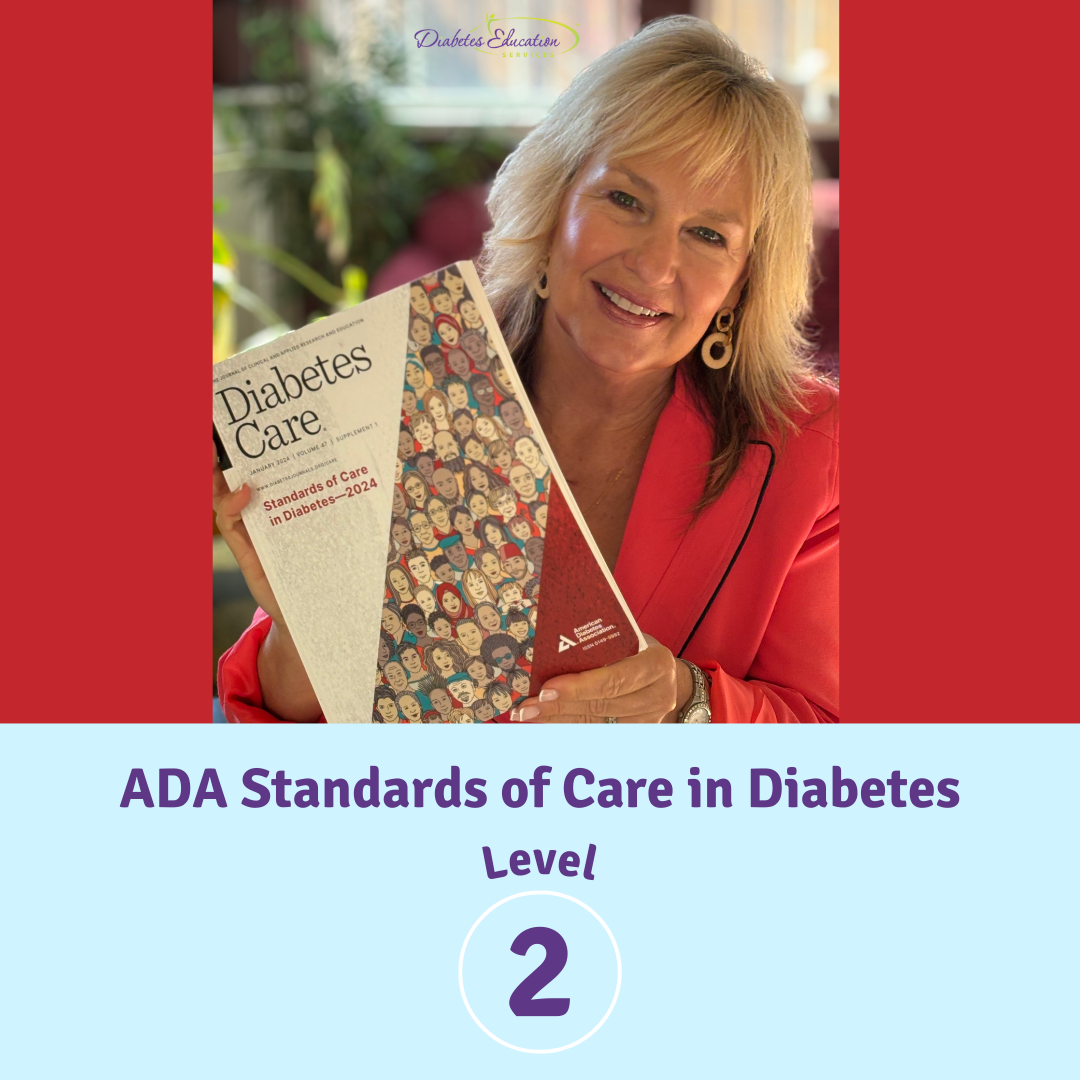 If you’re one of the many CDCES professionals uncertain about the latest certification renewal requirements, this article will help clarify the process.
If you’re one of the many CDCES professionals uncertain about the latest certification renewal requirements, this article will help clarify the process.
We visited the official Certification Board for Diabetes Care and Education Website and did a little detective work and sleuthing, to help clarify the requirements so you can plan for your next renewal cycle.
The most important update is that starting in 2025, CDCESs renewing their certification must meet updated requirements aimed at enhancing diabetes care, education, and ongoing professional development.
These updates involve engaging in at least two CE activities focused on the American Diabetes Association Standard’s and completing a minimum of 75 hours of continuing education (CE) during the renewal period. The aim is to help CDCESs stay up-to-date with evolving standards, thereby improving care and fostering professional development.
New ADA Standard of Care CE Requirements:
CDCESs are required to engage in CE activities—either virtually or in person—twice during their renewal period, focused on the American Diabetes Association’s annual Standards of Care for Diabetes updates.
Both activities can be completed at any time within the renewal cycle. There is no set minimum duration or specific CE credit requirement for these activities. The goal is to ensure CDCESs stay current with evolving standards, which enhances care and supports professional growth.
Activities recognized by CBDCE or its approved providers that pertain to the ADA Standards of Care annual updates will fulfill this obligation.
Documentation and Verification: During renewal, CDCESs will attest to completing these activities. If selected for an audit, they must provide documentation such as CE certificates or conference agendas that verify their participation in relevant sessions. For example, attending a conference on ADA updates will count, provided attendees can verify the specific sessions they attended.
Length of CE Activity: There is no specific number of CEs that one has to earn or minimum length of the activity (30 minutes, 1 hour, 1 day, etc.) for the activity to be able to be used to meet the requirement. The intent for this change is for the CDCES to keep abreast of changes, maintain current knowledge, and enhance the quality of care provided to people with diabetes. It also provides a means for CDCESs to engage in on-going professional development.
Make sure CE Provider is Accredited*. To verify the courses qualify, verify the CE provider is on the List of CBDCE Recognized Providers or has been approved by a Provider on our List of Recognized Providers. Also check that the content of the activities pertains to the annual release of American Diabetes Association’s Standards of Care for Diabetes to ensure that the activity meets the requirement.
*Diabetes Education Services is accredited by the CDR and all CE hours earned can be applied towards renewal.
Optional CE Topics for Renewal that are encouraged but not required:
To reflect recent changes in the specialty, the Board encourages CDCESs to complete continuing education (CE) activities in at least one of the following areas during their renewal cycle (individual or program level):
- Educational principles and teaching strategies
- Diabetes-related technology
- Leadership and strategy (e.g., CQI, change management, program development)
- Population health
- Diversity, equity, inclusion, and accessibility (e.g., social determinants of health, cultural competency)
These broad topics are designed to support evolving roles in diabetes care and education, ensuring CDCESs stay informed about emerging trends. The Board anticipates that many CDCESs will have already engaged in at least one activity within these areas during their cycle.
During the renewal process, you will be asked if you have completed any CE activities in these areas and to specify the relevant topic. Starting in 2024, this information will be collected at the end of each renewal cycle and presented to the Board to provide insights into the CE content CDCESs are engaging with in their professional roles.

ADA Standards of Care Upcoming Class!
This course, updated annually, is an essential review for anyone in the field of diabetes. Join Coach Beverly as she summarizes the annual updates to the American Diabetes Association’s (ADA) Standard of Medical Care in Diabetes & provides critical teaching points & content for healthcare professionals involved in diabetes care & education
All hours earned count toward your CDCES Accreditation Information
Sign up for Diabetes Blog Bytes – we post weekly Blog Bytes that are informative and FREE! Every week we post one exam practice Question of the Week and Rationale of the Week. Sign up below!
The use of DES products does not guarantee the successful passage of the certification exam. CBDCE and ADCES do not endorse any preparatory or review materials for the CDCES or BC-ADM exams, except for those published by CBDCE & ADCES.









